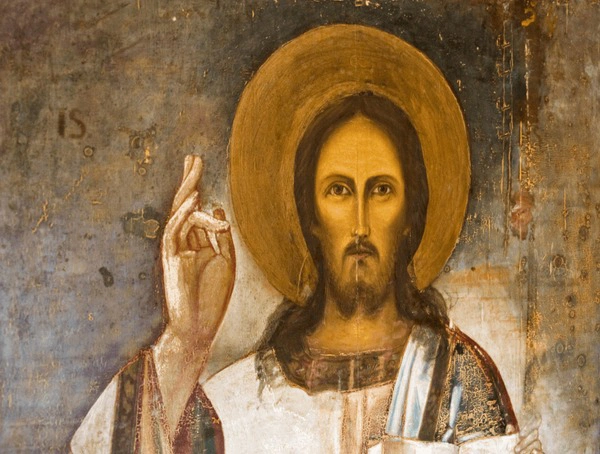
The Prophetic Significance of Bethlehem in Matthew 2:6
Bethlehem's prominence in prophecy underscores its significance in the narrative of Jesus’ birth, as described in Matthew 2:6. This article explores the prophetic role of Bethlehem, the humble beginnings of Jesus, and His role as a shepherd to Israel, offering insights into the fulfillment of prophecy and its implications for Christian faith.
David Walker
26/11/2024 - 5 months ago

Bethlehem in Biblical Prophecy
Bethlehem, a small town in Judea, holds remarkable significance in biblical prophecy, as highlighted in Matthew Chapter 2:Verse 6. This verse quotes the prophecy from the book of Micah, which foretells that Bethlehem would be the birthplace of a ruler who would shepherd the people of Israel. This prophecy is crucial because it links the Old Testament with the New Testament, showing continuity in God's plan for humanity.
The prophecy from Micah is found in Micah 5:2, where it states that though Bethlehem is small among the clans of Judah, out of it will come a ruler. This ruler is understood to be Jesus Christ, whose birth in Bethlehem fulfills this ancient prophecy. This connection between the Old and New Testaments highlights the divine orchestration in the events surrounding the birth of Jesus, emphasizing God's sovereignty and faithfulness to His promises.
For people of faith, understanding the significance of Bethlehem in prophecy provides deeper insight into the birth of Jesus. It underscores the idea that Jesus' arrival was not a random event but a fulfillment of God's long-standing promise to send a savior. This prophetic fulfillment is a testament to the reliability of Scripture and the intricate planning of God's redemptive work throughout history.
The Humble Beginnings of a Ruler
Bethlehem's selection as the birthplace of a ruler to shepherd Israel is profound, given its humble status. In biblical times, Bethlehem was a small and seemingly insignificant town, not typically associated with royalty or grandeur. Yet, it was chosen as the birthplace of Jesus, the King of Kings, illustrating a profound truth: God's ways often defy human expectations.
This choice of Bethlehem reflects a consistent theme in Scripture where God elevates the humble and uses the least likely places and people to achieve His purposes. Jesus, born in a manger, represents the humility and servanthood that characterize His life and ministry. His birth in Bethlehem serves as a reminder that greatness in God's kingdom is not measured by worldly standards but by faithfulness and obedience to His will.
For followers of Christ, the humble beginnings of Jesus in Bethlehem serve as an invitation to embrace humility in their own lives. It challenges believers to see beyond outward appearances and to recognize the extraordinary potential in the ordinary. Jesus' birth in Bethlehem is a call to live a life marked by humility, service, and a deep reliance on God's plan, no matter how humble its beginnings may seem.
Shepherding the People of Israel
The prophecy in Matthew 2:6 not only points to the birthplace of the ruler but also describes His role as a shepherd to the people of Israel. The imagery of a shepherd is rich with meaning in biblical contexts, symbolizing guidance, care, and protection. Jesus, as the Good Shepherd, fulfills these roles by leading His people with love and compassion.
Shepherds in biblical times were responsible for the safety and well-being of their flock, often putting themselves at risk. Similarly, Jesus laid down His life for His followers, demonstrating the ultimate act of love and sacrifice. His shepherding is not just about guidance but involves nurturing and protecting His people from spiritual harm, providing a model for Christian leadership.
Understanding Jesus as a shepherd encourages believers to trust in His guidance and care. It reassures them that, like a shepherd, Jesus is intimately involved in their lives, watching over them and guiding them through life's challenges. This understanding fosters a deep sense of security and trust in God's provision and direction, encouraging believers to follow Him faithfully.
The Significance of Fulfilled Prophecy
The fulfillment of prophecy, as seen in Jesus' birth in Bethlehem, is a cornerstone of Christian faith. It serves as evidence of the divine nature of Jesus and the authenticity of the Scriptures. Prophecies like those in Micah, fulfilled in the New Testament, strengthen the belief in God's omniscience and His ability to bring His promises to fruition.
For Christians, fulfilled prophecies provide assurance that God's word is trustworthy and that His plans are unchangeable. This assurance is vital in a world filled with uncertainty and doubt. Believers can find comfort in knowing that God's promises are reliable and that He is actively working in their lives to fulfill His purposes.
Reflecting on the significance of fulfilled prophecy encourages believers to live with hope and expectancy. It reminds them that, just as God fulfilled His promises in the past, He will continue to do so in the future. This hope inspires a commitment to living out one's faith with courage and conviction, trusting in God's perfect timing and ultimate plan.




















